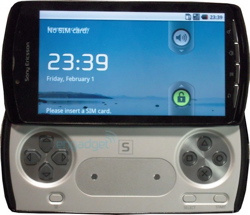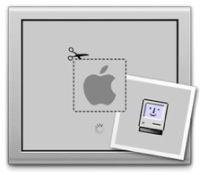
Microsoft Q2 2011 by the numbers: Record $19.95B revenue, 77 cents EPS
[Editor's Note: This was a live document from 4:20 p.m. EDT until 5:40 p.m.]
Microsoft weathered the brunt of slower-than-forecast PC sales to beat Wall Street consensus for fiscal 2011 second quarter. The software giant announced earnings after the bell, for the three-month period ended Dec. 31, 2010.

Facebook: Reports of branded phone 'overblown'
Facebook has denied reports that it had partnered with Taiwanese smartphone manufacturer HTC to release its own phones, calling the reports "overblown" in comments to Reuters. Reports of a possible partnership first surfaced in London-based business website City A.M. on Wednesday. The site claimed that the phones would be launched at an event at the Mobile World Congress, to be held February 14-17 in Barcelona.
While not saying that HTC was not developing some type of Facebook-enhanced phone, it would not be branded as such, the site's business development chief Dan Rose said. "This is really just another example of a manufacturer who has taken our public APIs and integrated them into their device in an interesting way," he said. Regardless, mobile is an ever bigger portion of the social networking site's business, a quarter-billion users visit its mobile site every month.

Google begins censoring torrent queries in searches
Google took steps Thursday to honor a previous commitment to root out piracy in its searches, beginning to censor torrent searches from its Autocomplete and Instant functionality. The Mountain View, Calif. company's efforts don't seem perfect: several torrent searches still seemed to be available.
Among the terms apparently filtered out include popular clients BitTorrent and Rapidshare according to reports. On some built-in search functions in browsers such as Internet Explorer and Safari, the terms appear to have disappeared. Betanews was still able to search for specific torrents such as "windows xp torrent," however, and Google was still returning torrent links through Instant at least for our testers.

UK police arrest five in connection with WikiLeaks attacks
London police have detained five individuals ages 15 to 26 in connection with an investigation into Anoymous, a "hacktivist" group responsible for attacks on companies that suspended accounts associated with leak site WikiLeaks. The investigation is a global effort, and includes law enforcement agencies in both the US and Europe.
The Metropolitan Police Service did not indentify the accused, nor did they directly link them to the group. In the US, efforts have been stepped up to identify anyone who may have been involved in the efforts here, although so far no arrests have been made. The UK five are charged with offenses under the Computer Misuse Act, passed by Parliament in 1990.

Tip: Watch internet TV through Windows Media Center
Let's be honest: watching TV on your computer can be a painful experience. If you have a TV tuner you still need access to an aerial point, and if you opt to watch over the Internet you can find yourself having to move between multiple websites when looking for something to watch.
The solution is obvious: watch internet television through Windows Media Center -- after all, it's perfect for live TV, so why not catch-up TV too? Some services -- like Sky Player in the UK -- are even available through WMC, but what if yours isn't covered?

Skype 5.0 for Mac released with UI tweaks
Skype has announced a final release for version 5 of its Mac client, bringing it in line with Windows. Skype for Mac 5.0 was originally released as a public beta last November, and immediately brought an outcry from enraged Mac users unhappy with the redesigned interface, which had been tweaked to bring it into line with the Windows version.
As a result, Skype has made a number of tweaks to this final version that aim to address the criticisms. It also brought back full-screen video chat and made it easier to view and hide the chat options when in a conversation. However, the final release also means that group video chat -- which was previously free in the beta version -- is now a premium feature, with a day pass costing $4.99, and a monthly subscription costing $8.99. A 7-day trial is included within the latest release.

Confessions of a former Nokia enthusiast
I love Nokia. It's a global brand with huge, but rapidly declining, global presence. Nokia brought advanced capabilities, like quality photography, video recording and video calling, to its handsets long before competitors. For years, Nokia defined mobile innovation at both ends of the market -- providing quality, affordable handsets to the masses and cutting-edge feature phones to enthusiasts. That was then. I love Nokia, but Nokia doesn't love me.
Nokia is rapidly bleeding market share, and its once hallowed brand is being hollowed by Apple and competitors like HTC and Samsung that ship Android smartphones. By Nokia's own estimates, its share of the global smartphone market fell to 31 percent during fourth quarter 2010. Nokia's decline is much less about Androids and iPhone and more about the Finnish handset maker falling behind in software and services, and in process losing developer and even customer confidence.

Opera releases 11.01 final version
After pushing out two release candidates in as many days, Opera Software on Thursday released the final version (build 1190) of its Opera 11.01 Web browser.
This latest version adds some tweaks to mouse gestures, and some stability improvements. The only real new feature of this particular version is the inclusion of the DOM object window.DOMStringList, but it is still an extremely important download for security purposes.

Sony announces PlayStation gaming suite for Android
At a press conference in Japan on Thursday, Sony Computer Entertainment announced it will be launching PlayStation Suite, which will make PlayStation content available on Android handsets and tablets.
"The world of portable [gaming] has undergone a huge change since the release of the PSP," said Kazuo Hirai, President and Group CEO of Sony Computer Entertainment. "When we released PSP, cell phone providers were unable to deliver PlayStation-quality content. After six years, these multi-function handheld devices are ready for the PlayStation-like experience."

Did you miss out on the Chrome OS notebook? Psst, you can still get one
A fair number of Betanews readers have asked how they could get Google's unbranded Cr-48 notebook running Chrome OS. On Dec. 7, 2010, the information giant announced a pilot distributing 60,000 notebooks -- a grand test for those folks ambitious enough to live on the web for as long as six months. I assumed that Google had given out all the laptops. Either it didn't or there's a new batch to be had.
In a blog posted late this afternoon Eastern Time, Heaven Kim, Google product marketing manager, writes: "If you already live on the web and are itching to get your hands on a Chrome notebook, we've teamed up with a few Web Store apps for a chance to test-pilot the Cr-48. Check out blog posts from MOG, Box, LucidChart, and Zoho for more details. Then go ahead and rock out with 10 million songs, manage your files in the cloud, perfect your diagram drawing skills or move your office onto the web. While you're at it, you might also discover a new favorite app among the more than 2,000 apps in the Chrome Web Store."

LogMeIn Ignition: Control your PC from iPhone or iPad
The value of a remote access tool is difficult to appreciate until you try one for the first time. Using the right software, it is possible to sit at home and work with your computer in the office as if you sat in front of it. This can be achieved with desktop software such as LogMeIn, but there is also a version available for iOS in the form of LogMeIn Ignition. It may sound adventurous to consider accessing your desktop PC or Mac from your iPhone or iPad, but that is precisely what the app enables you to do.
All you need to do to get started is to install the desktop software on your computer and the app on your iOS device. You can then create a LogMeIn account which you can then use to control which computers are able to gain remote access. For the purposes of security, no computer will be granted access without the correct password, and IP address filtering can be used to increase protection further. An on-screen message is displayed on your Mac or PC whenever a remote session is started so you can terminate any unauthorised sessions that may be started.

Google releases Honeycomb platform preview: Android's biggest redesign yet
Today, Google rolled out the first platform preview of the Android 3.0 software development kit, giving the public its first look at Android for tablets and its "holographic" user interface.
This is easily the most dramatic design shift Android has yet experienced, but all of the operating system's key features have been retained.

OpenOffice.org 3.3 is ready -- download it now
It's taken quite some time, and no less than 10 Release Candidate builds, but all the preparations are about to pay off -- the final release of OpenOffice.org 3.3 officially released today, and it's packed with handy new features that, taken together, make the suite significantly more comfortable to use.
All the major apps now come with a new Find toolbar, for example, allowing you to quickly search a document's text. Charts may be enhanced with drawing objects. In a click or two you can insert anything from lines, rectangles or text for simple captions, say, up to cubes, symbols, blocks, even flowcharts. The Calc spreadsheet now supports 1,048,576 rows, up from 65,536.

Network Edition brings CCleaner capabilities to IT organizations
Piriform Software has released a brand new version of its popular cleaning tool for Windows. CCleaner Network Edition is aimed at corporations wishing to use CCleaner's capabilities across an entire network. It's designed to be managed from a single central location, allowing IT managers to set up one cleaning profile that's implemented consistently across all workstations running CCleaner. Prices start from $250 for 10 computers, although Piriform is currently offering a 20 percent discount during the program's launch period.
Hot on the heels of the Network Edition's release, Piriform has also updated the standalone edition of CCleaner, which is free for personal and non-commercial use. CCleaner 3.03 adds support for three minor browsers -- including Chrome Plus -- alongside its existing support for Internet Explorer, Firefox, Google Chrome, Safari and Opera.

Tip: How to change your Mac start-up screen
Apple is as much about its looks as its substance, which begs the question: why that drab, grey start-up screen with the darker grey Apple logo superimposed over it? Hardly inspiring stuff when you boot your Mac first thing in the morning.
Thankfully, there's a free tool out there that can help you transform this dull and uninspiring backdrop into something more colorful and personal. BootXChanger runs on Intel Macs sporting Mac OS X 10.4 (Tiger) or later, and is simplicity itself to use.